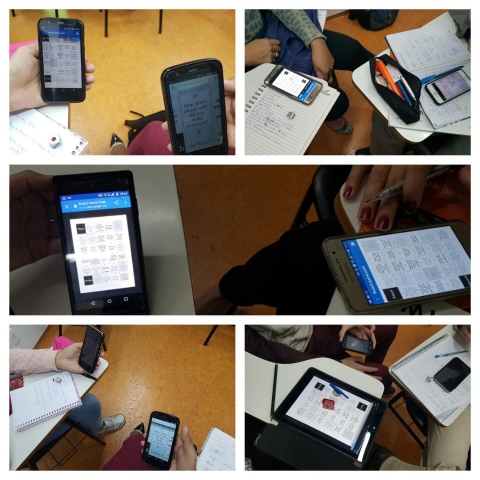
Posted by Raquel Ribeiro
One fact that motivated me to use this particular social network was the growing number of users. Instagram brings a visual engagement and dynamism that appeal to young people and adults.
First step
Create a unique account for your role as a teacher for educational purposes. I suggest leaving the profile open because the students can find us easily and interact even if they choose not to follow us. https://www.instagram.com/accounts/emailsignup/
Activity Ideas for Student Engagement
Share a post search task and have students respond to the task in the comments. It is important that, before you post, you instruct your students to copy the content before sending, in case there is an error the student can delete the comment and make the correction more quickly.
In the link below you can see the topic Career Goals.
Students were assigned an article to read and then share what they consider most remarkable and can relate on the comments. Check it out:
https://www.instagram.com/p/Bt8Pf8OFYHg/
https://www.instagram.com/p/Bt8Q_4xlbfk/
Forming digital citizens always
This moment of sharing in the social network generates responsibility and gives us the opportunity to bring to light the responsible use of social media. Students have the chance to expand their vocabulary through research and if necessary rewrite teacher feedback content. I usually work with this type of activity in pairs or trios, in case some students are not part of this social network.
The post can be a source of pride for student output in real context.
Here other examples:
How to do in Instagram Stories
Stories are sharing photos or videos of up to 13 seconds that are available for 24 hours in the top bar of the application. When you share a photo in the feed it stays permanently on your profile. If it is shared through the stories there is this specific duration.
We can question and test students quickly using the 'Questions' and 'Poll' functions.
Stories examples bank:
http://bit.ly/Insta_stories_raquel
Innovation generates engagement! Let us know if you try it in your classroom context.
Questions and doubts?
Share in the comments below
excellent